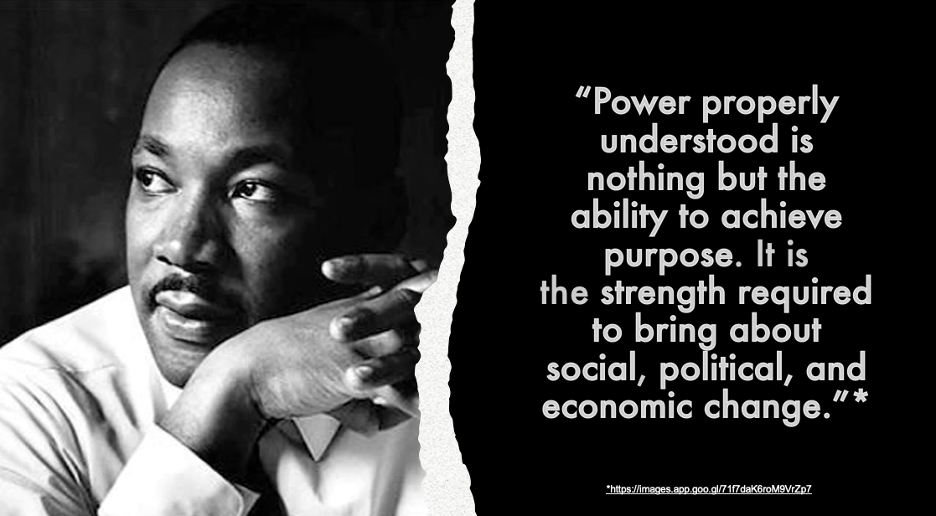Hello! We are Dr. Albertina Lopez (she/her), Julia Coffman (she/her), and Mariah Brothe Gantz (she/her) with the Center for Evaluation Innovation. Over the last two years, we have been evaluating the advocacy and systems change work of The California Endowment’s (TCE) Building Healthy Communities’ (BHC) initiative, a 10-year, $1 billion effort launched in 2010 to help transform 14 of California’s communities most devastated by health inequities into places where all people have an opportunity to thrive.
BHC aimed to achieve health equity by investing in the social, economic, and political power of residents who have been the targets of exclusion, stigma, and discrimination. TCE recognized that doing this in a significant and sustainable way required policy and systems change. This made organizing and advocacy a core element of BHC work.

Historically, advocacy funders and evaluators primarily have defined success as achieving a policy or systems change “win.” Was the campaign successful in achieving a sanctuary city ordinance to help keep immigrants safe? Did organizers and advocates succeed in getting infrastructure funding that ensures access to clean water? These wins are important goals for sure and the building blocks of transformational change, but we see time and again that wins are vulnerable. Once achieved, they face attacks. When political control shifts, they can be reversed.
Achieving wins that sustain and equitably meet the needs of impacted communities—who also are best positioned to continue advocating for and building on wins after they are achieved—requires an orientation to funding and evaluating advocacy that is focused on advocacy that builds power in addition to achieving wins.
Lesson Learned:
If we practice advocacy evaluation to be in service of equity, we have an obligation to study the role of impacted communities and how their power has been affected. The Equitable Evaluation Framework confirms that evaluative work should answer questions about the effect of a strategy on the underlying systemic drivers of inequity and its effects on different populations.
Rad Resource:
We can use the Power Building Framework developed by Dr. Gigi Barsoum to guide our evaluative work. It is grounded in organizing and describes how power is built when impacted communities are centered in an ecosystem of groups and organizations that use advocacy and systems change to achieve wins that ultimately address long-term structural inequities and transform systems of oppression.
Hot Tip:
According to the Power Building framework, advocacy evaluators can assess whether the power of impacted communities has expanded at different levels:
- Individual – In what ways, if any, have individuals from impacted communities emerged as leaders in influencing the policies and systems that affect them?
- Organizational – How have the base, reputation, or access to decision makers changed for specific organizations involved?
- Ecosystem – To what extent have the partners and their relationships changed?
- Geography – What has changed about the geographic reach of the power ecosystem?
- Context – What are the dominant narratives and political conditions?
The American Evaluation Association is hosting APC TIG Week with our colleagues in the Advocacy and Policy ChangeTopical Interest Group. The contributions all this week to aea365 come from our AP TIG members. Do you have questions, concerns, kudos, or content to extend this aea365 contribution? Please add them in the comments section for this post on the aea365 webpage so that we may enrich our community of practice. Would you like to submit an aea365 Tip? Please send a note of interest to aea365@eval.org. aea365 is sponsored by the American Evaluation Association and provides a Tip-a-Day by and for evaluators. These views and opinions do not necessarily represent those of the American Evaluation Association, and/or any/all contributors to this site.

Hello to all,
I guess that changing a policy as an evaluator is a brief win but when it comes down to it, the point of it is to find the problem, and figuring out a good way of solving it for the benefit of the people that need it. Seeing a positive change should be considered the real win.
This is such critical framing: “Achieving wins that sustain and equitably meet the needs of impacted communities—who also are best positioned to continue advocating for and building on wins after they are achieved—requires an orientation to funding and evaluating advocacy that is focused on advocacy that builds power in addition to achieving wins.” Thank you for sharing!
If we practice advocacy evaluation to be in service of equity, we have an obligation to study the role of impacted communities and how their power has been affected. ” Love this. Keep up the good work. You are doing the right thing.